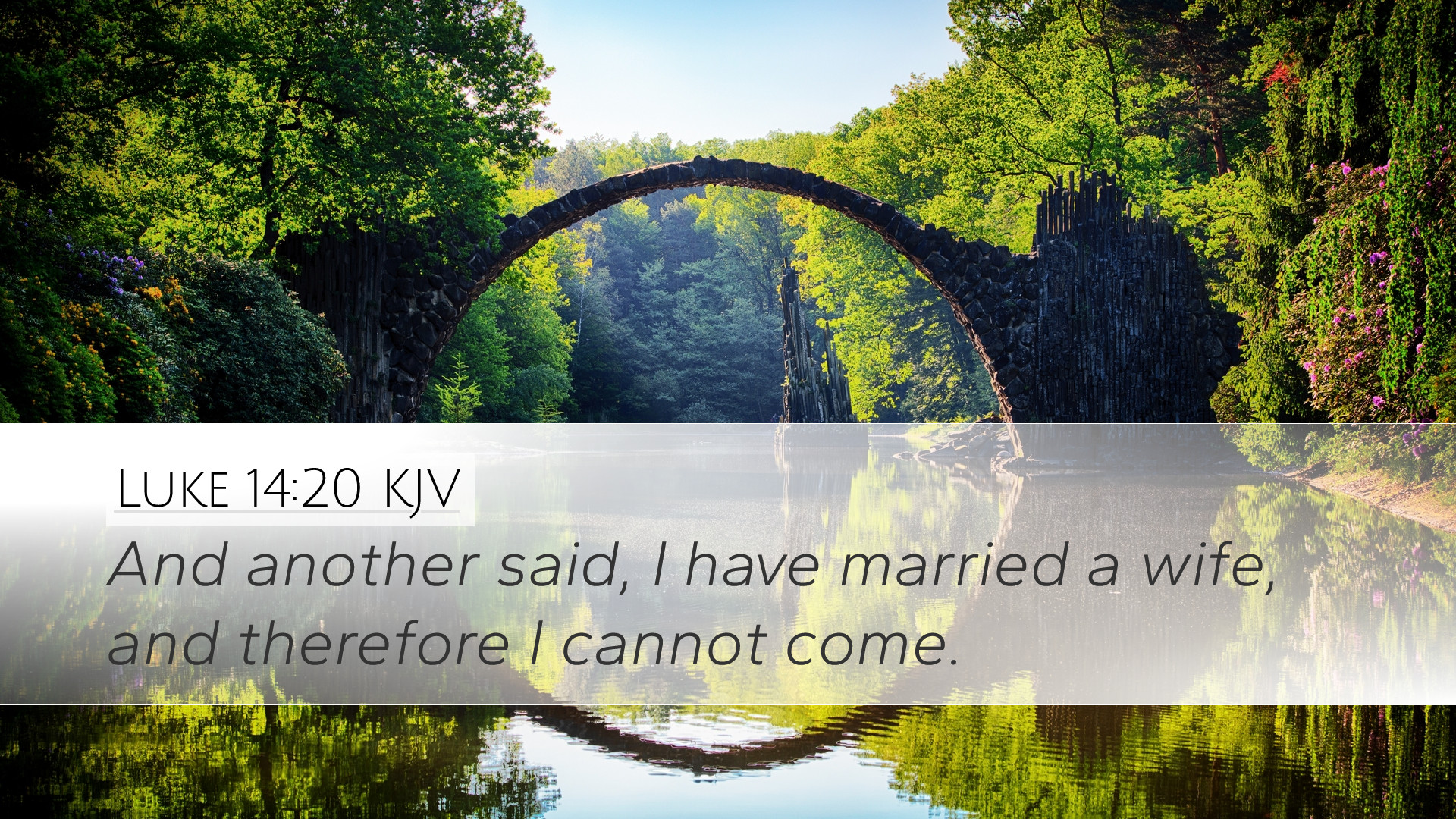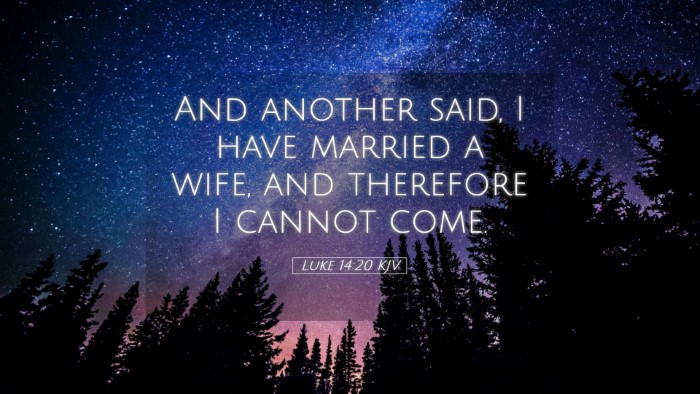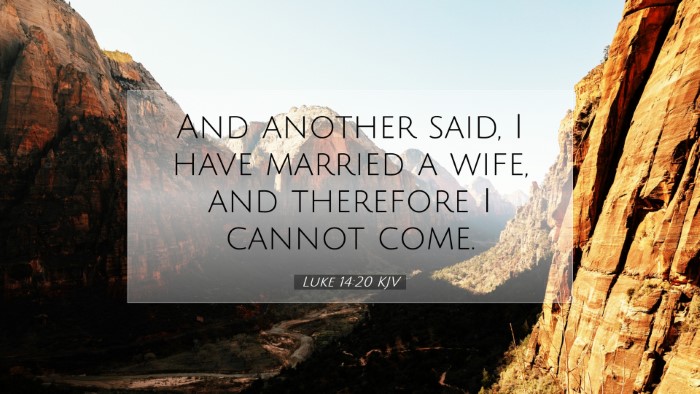Commentary on Luke 14:20
Luke 14:20 states: “And another said, I have married a wife, and therefore I cannot come.” This verse is part of the parable of the great banquet, entrusting us with the deeper insights into the nature of divine invitation, human excuses, and the implications of God's call on our lives.
Contextual Overview
The parable is introduced in a context where Jesus challenges the societal norms and the attitudes towards God's kingdom. He speaks to a group that exemplifies both religious and social elites, showcasing how they often miss the invitation extended by God to partake in His divine banquet.
Insights from Commentaries
Matthew Henry
Matthew Henry emphasizes the importance of the invitation in this parable. He notes that the man who could not come due to his marriage represents individuals who prioritize earthly commitments over spiritual responsibilities. Marriage, a sacred institution, becomes an excuse rather than a blessed obligation to respond to God’s call. Henry points out that this illustrates the danger of letting worldly matters distract us from our heavenly calling. He underlines that while familial and societal commitments are valid, they should never hinder one's response to God's greater invitation.
Albert Barnes
Albert Barnes offers a practical perspective on the excuses given for rejecting the invitation. He suggests that this particular excuse reflects a common human condition: the inclination to allow personal circumstances to take precedence over divine responsibilities. Barnes notes that the man’s excuse about marriage indicates the personal nature of the commitment, hinting at a common fear—one may fear that one’s obligations may conflict with one's obedience to God. He argues that such excuses are often rooted in misunderstanding one's priorities and the urgency of responding to God's call.
Adam Clarke
Adam Clarke adds to the discussion by providing a historical context regarding the customs surrounding marriage. He indicates that in Jewish culture, a man newly married could be excused from certain obligations, as the significance of marriage was highly regarded. However, Clarke warns against leveraging such cultural practices as perpetual excuses for withdrawing from God’s obligations. He provides insight into the spiritual ramifications of allowing even good commitments, like marriage, to take precedence over spiritual responsibilities, calling believers to evaluate their own lives in the light of eternal commitments versus temporal pleasures.
Theological Implications
The verse raises significant theological implications concerning priorities in a believer's life. It invites all who hear the invitation of God to reflect on their own excuses. The following points summarize key reflections:
- Prioritization of Divine Call: Believers must examine their hearts to ensure they are not allowing legitimate commitments to become barriers to answering God’s call.
- Understanding the Banquet as a Metaphor: The banquet symbolizes the joys and blessings of salvation and fellowship with God. Ignoring such an invitation leads to a bleak spiritual existence.
- Call to Action: The parable serves as a stark reminder that the kingdom of God is urgent and all-encompassing, inviting all into its fold regardless of status and background.
Contemporary Application
This parable resonates today as it did in Jesus's time. Modern individuals frequently face similar challenges—balancing work, family, and faith. The plea from this scripture is not to overlook the heavenly banquet due to earthly distractions. It calls believers to:
- Evaluate Commitments: Reflect on the priorities in one's life to ensure they align with God's kingdom values.
- Engage with the Invitation: Actively participate in the life and ministry of the church, sharing in the commission to gather others into God’s banquet.
- Encourage Others: Create a community that encourages individuals to embrace their divine callings rather than retreat into comfortable excuses.
Conclusion
Luke 14:20 serves as a profound reminder that the call of God often requires a response that transcends worldly commitments. Through the lens of the commentaries from Matthew Henry, Albert Barnes, and Adam Clarke, we gain a deeper understanding of the implications of our choices in light of divine invitation. Ultimately, it challenges all believers to examine their own invitations and responses to God, encouraging active participation in the kingdom over passive excuses.


